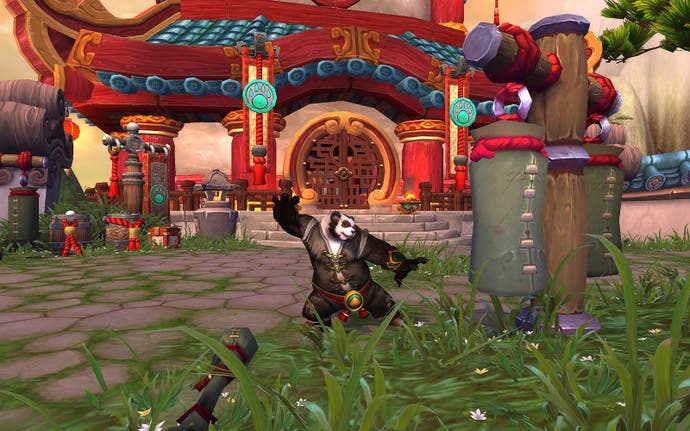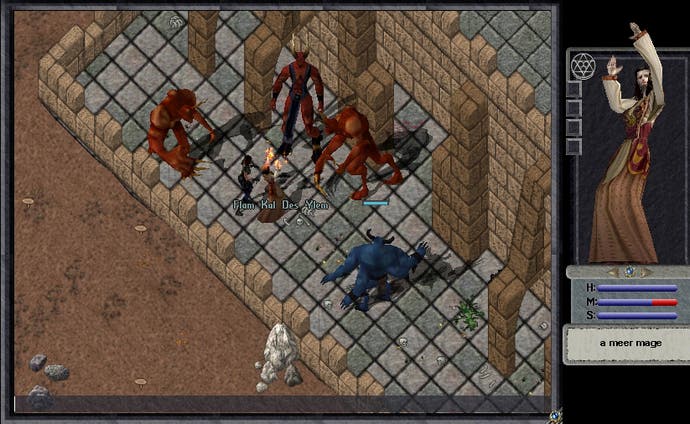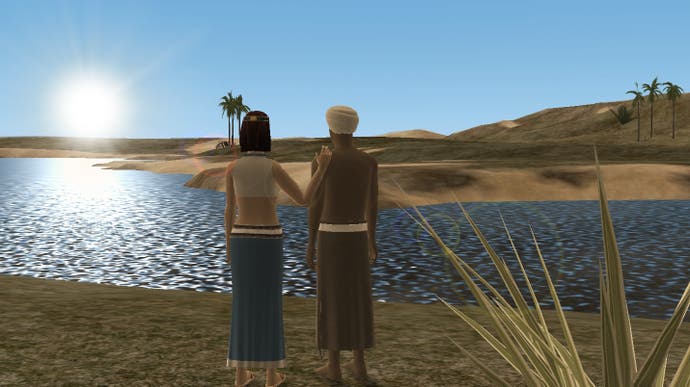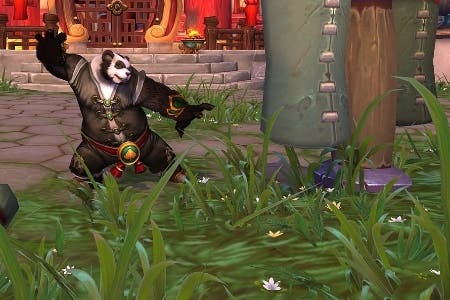Saturday Soapbox: Death of the MMORPG
End of the MMOad
MMORPGs had a good run. There's no shame in admitting their time in the sun is over, and that it's time to package the whole genre into a small cardboard box, label it 'Fond Memories', and slide it under the bed with classic adventures and those little dancing flower things that seemed like magic back in the '80s.
Obviously, yes, plenty of MMORPGs are doing just fine right now. World of Warcraft boasts over 10 million players, and at least a few of them aren't just there because they can't be bothered to cancel. Guild Wars 2, Eve Online and several of the games that have just turned F2P are doing fine, and would be crazy to shut themselves down just to help me make my point. It would be nice though, if any of them are listening. Blizzard? Hello?
That's not the issue though. People still make adventure games, and do well from them. That doesn't mean it's still a top-tier genre, and largely for the same reason - people still play them, but the numbers failed to scale along with the industry. Once upon a time, MMORPG numbers were the gold standard for online user-bases, when a million was an impossible number that AAA games dreamed of hitting over time.

Now, with the exception of World of Warcraft and games that exist mostly to give people in cybercafes who aren't into Starcraft something to do with their hands, those same numbers are deeply unimpressive. The Old Republic, pre-F2P, slumped to under a million subscribers shortly after launch. Last I heard, Eve Online was rolling at around the 400,000 mark. League of Legends currently boasts 32 million active players a month. Individual games can still do very well, especially if blessed by the F2P fairy, but the online crown has been passed to other types of games - to MOBAs, to Call of Duty, to Minecraft.
Why the handover? Put simply, while obviously quality matters, a game or genre goes from success to cultural phenomenon for one reason - being in the right place at the right time. MMORPGs are no exception. At a time when 'multiplayer' meant something relatively simple like a round of Street Fighter 2 or a rocket fight in one of Quake's dungeons, they promised living worlds to be a part of. That guy buying supplies would be real. That girl killing an orc was real. Everquest didn't pioneer this, coming on the heels of games like Ultima Online and Meridian 59, but it did popularise it amongst gamers, just as World of Warcraft would later inspire the real world to come and live alternate lives.
The novelty element of this can't be overstated - not to diminish the games that followed, but to explain why we'll never see a World of Warcraft 'killer'. In the '90s and early 2000s, the experience of stepping into a world full of actual people was the gaming equivalent of television getting colour, or reaching for your first virtual bubble in a 3D movie. Now, that spark is gone. From console games to Facebook, social is simply standard these days. If someone's never played a MMORPG, it might be neat, but it's not going to be magical any more.
Unfortunately for MMORPGs, providing that magic means building for large world populations, and that usually detracts from the overall experience. Endless compromises have to be made in the name of processing and bandwidth, to say nothing of basic quest design and catering to everyone from the player who just wants to hit maximum level in five minutes to the one who reads every scrap of lore. Your personal impact on anything is minimised to the point of irrelevance in both the short and the long-term.
"To step into an MMO with faith in humanity is to enter a Darwinian nightmare of sex, blood and gold farming."

Worst of all, the more freedom a game offers, the more it'll inevitably be abused. Resources will be strip-mined. Any commercial element will turn the world into a temple of capitalism. Through theorycrafting, any advantage will be seized, dismantled and made the new standard everyone has to live up to. That's not to say that people are inherently oily scum, but something about a virtual world really speaks to the inner psychopath - as seen in the classic RPG rule "If you stat it, they will kill it." To step into an MMO with faith in humanity is to enter a Darwinian nightmare of sex, blood and gold farming.
That can still work of course. As mentioned, Eve Online does it. There's also something to be said for being a tourist, and the quiet feedback loop of smacking stuff to get better at smacking and stuff, like Gandalf and Conan hanging out in a pub with a big roll of bubblewrap. Still, most of the good times in MMORPGs take place in two worlds - single-player focused content, which could inevitably be done better by a single-player game, and the more intimate worlds of dungeons and raiding, where you literally step out of the world with a select group of friends.
Coincidentally, that last one is what most of the competition specialises in right now. Unlike MMORPGs though, they don't make you fight through 60 levels of other stuff to get to it, and get to focus entirely on that experience. An MMORPG could technically do something similar, and just offer dungeons and raiding from a central hub. Dungeons and Dragons Online attempted that, though without much success.
The more you strip out though - the crafting, other players, questing and so on - the less it becomes an MMORPG rather than simply a fantasy game with a few RPG elements mixed in. For a little bonus irony, the result would almost certainly be written off by its intended players as lacking that scope, even if it was a perfect recreation of the endgame they craved.

Chasing the MMORPG dragon doesn't make sense on a creative level either. It's nowhere near as expensive as it used to be to run one, but making all the systems and doing voice recording and providing enough content for the player-beast to churn through is another matter. In a genre where Star Wars, Dungeons and Dragons, Lord of the Rings and other titanic names have struggled for relevance, pumping in the millions and millions of dollars and years of development needed for an AAA offering is now an insane gamble.
Does this mean anyone working on RPGs should hang up their keyboards and get ready for a career of making MOBAs instead? Absolutely not. I'm simply talking about accepting that "Online RPG" doesn't automatically mean "MMORPG", and even then, there's hope for the latter. They do however have to turn the 'Massively' bit into at least the same step up in entertainment that playing these with friends offers over playing alone, and a way to rekindle that original spark. It's not simple, but it's doable.
Until inspiration strikes though, it's not like there's a shortage of other directions to experiment with, from finally putting all resources behind the holy RPG grail of uniting CRPG and tabletop style gaming, to simply picking up some of the dropped batons over the last decade or so.
Diablo may have claimed Rogue for instance, but why is nobody interested in embracing Nethack in all its craziness? How about smaller servers, to allow for worlds, but small enough player populations to better recognise and deal with people as individuals rather than just 'mage' and 'fighter', or even allow for direct player modding? Anything is possible, especially now online games don't have to offer endless padded out single-player content or artificially slow progression in the name of a subscription fee.
That's the frustration here. There's nothing holding online RPGs back, save their own insistence on a selling point that really hasn't been there for ages. Until someone breaks out of the mould and finds a new spark to excite the world with though, other genres are only going to race on and leave even the best new worlds in the metaphorical dust. There's no arguing that MMORPGs were amazing once. Now? Pfft. They're just so 1999...

